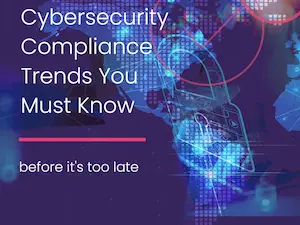Understanding Cyber Security Compliance: Essential Knowledge for Your Business

We recognize the critical importance of cybersecurity compliance in today’s digital landscape.
As cyber threats evolve, so do the regulations and standards designed to protect your business.
Understanding and adhering to cybersecurity compliance is not just a regulatory requirement but a cornerstone of your organization’s security strategy.
This article will explore cybersecurity compliance, why it is essential, and how Remote Techs can help you navigate this complex field.
1. What is Cybersecurity Compliance?
Cybersecurity compliance refers to the adherence to laws, regulations, and standards that mandate how businesses should protect sensitive information from cyber threats. These regulations vary by industry, region, and type of data but share a common goal: ensuring that companies implement appropriate measures to safeguard data and systems against unauthorized access, breaches, and other cyber risks.
Different industries face different regulatory requirements. For example, financial institutions must comply with the Payment Card Industry Data Security Standard (PCI DSS), while healthcare organizations adhere to the Health Insurance Portability and Accountability Act (HIPAA). Understanding these requirements is crucial for achieving cybersecurity compliance.
2. Why is Cybersecurity Compliance Important?
1. Protecting Sensitive Information: One primary reason for cybersecurity compliance is to protect sensitive information. Businesses collect and store various data types, including personal, financial, and health-related information. Compliance ensures that this data is protected from breaches and unauthorized access, maintaining its confidentiality, integrity, and availability.
2. Avoiding Legal and Financial Consequences: Non-compliance with cybersecurity compliance regulations can lead to severe legal and financial repercussions. Fines, penalties, and legal costs can significantly impact your business. Additionally, non-compliance can damage your company’s reputation, causing a loss of customer trust and business opportunities.
3. Enhancing Customer Trust: Demonstrating cybersecurity compliance enhances customer trust. Clients and customers are likelier to do business with companies that prioritize data security and adhere to industry standards. Compliance can be a competitive advantage, showcasing your commitment to protecting client information.
4. Mitigating Risks: Effective cybersecurity compliance helps reduce various risks associated with cyber threats. By implementing required security measures and controls, businesses can reduce the likelihood of data breaches, system failures, and other cyber incidents that could disrupt operations and harm stakeholders.
5. Streamlining Business Operations: Compliance frameworks often provide guidelines for implementing robust cybersecurity practices. Following these guidelines can help streamline your business operations by establishing clear protocols and procedures for handling data and responding to incidents.
3. Critical Components of Cybersecurity Compliance
Contact Remote Techs For IT Support Los Angeles Today
We provide comprehensive, tailored solutions ensuring smooth and secure operations. Trust our expertise to empower your business for growth and resilience.
Contact Us1. Risk Assessment and Management: Regular risk assessments are fundamental to cybersecurity compliance. This process involves identifying your information systems’ potential threats, vulnerabilities, and risks. You can implement appropriate controls and measures to mitigate identified risks based on the evaluation.
2. Data Encryption and Protection: Encrypting sensitive data is crucial for cybersecurity compliance. Encryption ensures that data remains secure, even if it is intercepted or accessed by unauthorized individuals. Implementing robust encryption methods and protecting data at rest and in transit are essential for maintaining compliance.
3. Access Controls and Authentication: Implementing robust access controls and authentication mechanisms is vital for cybersecurity compliance. This includes enforcing strong passwords, multi-factor authentication, and role-based access controls to ensure only authorized personnel can access sensitive information.
4. Incident Response Planning: Developing an incident response plan is critical to cybersecurity compliance. This plan outlines the procedures for detecting, responding to, and recovering from cyber incidents. Having a well-defined response plan helps minimize the impact of incidents and ensures a swift and coordinated response.
5. Employee Training and Awareness: Employees play a crucial role in maintaining cybersecurity compliance. Regular training and awareness programs help employees understand the importance of data security, recognize potential threats, and follow best practices for protecting sensitive information.
4. How Remote Techs Can Help
We understand that navigating cybersecurity compliance can be complex. Our team of experts is dedicated to helping your business achieve and maintain compliance with relevant regulations and standards. Here’s how we can assist:
1. Compliance Assessment: We conduct thorough assessments to evaluate your current compliance status and identify areas for improvement. Our team provides actionable recommendations to address compliance gaps and enhance your cybersecurity posture.
2. Policy Development: We assist in developing and implementing comprehensive cybersecurity policies and procedures tailored to your needs and industry requirements. These policies help ensure your organization adheres to best practices and regulatory standards.
3. Risk Management: Our services include identifying potential threats, assessing vulnerabilities, and implementing controls to mitigate risks. We help you prioritize and address security concerns to strengthen your compliance framework.
4. Training Programs: We offer customized training programs to educate your employees on cybersecurity compliance best practices. Our training sessions cover essential topics, including data protection, incident response, and safe online behavior.
5. Continuous Monitoring and Support: Achieving cybersecurity compliance is an ongoing process. Remote Techs provides constant monitoring and support to ensure that your compliance measures remain practical and up-to-date with evolving regulations and threats.
Understanding cybersecurity compliance is essential for safeguarding your business against cyber threats and regulatory risks. We are committed to helping you navigate the complexities of compliance and implement effective measures to protect your sensitive information. Our expertise and support enable you to focus on your core business while ensuring that your cybersecurity practices meet industry standards and regulatory requirements.